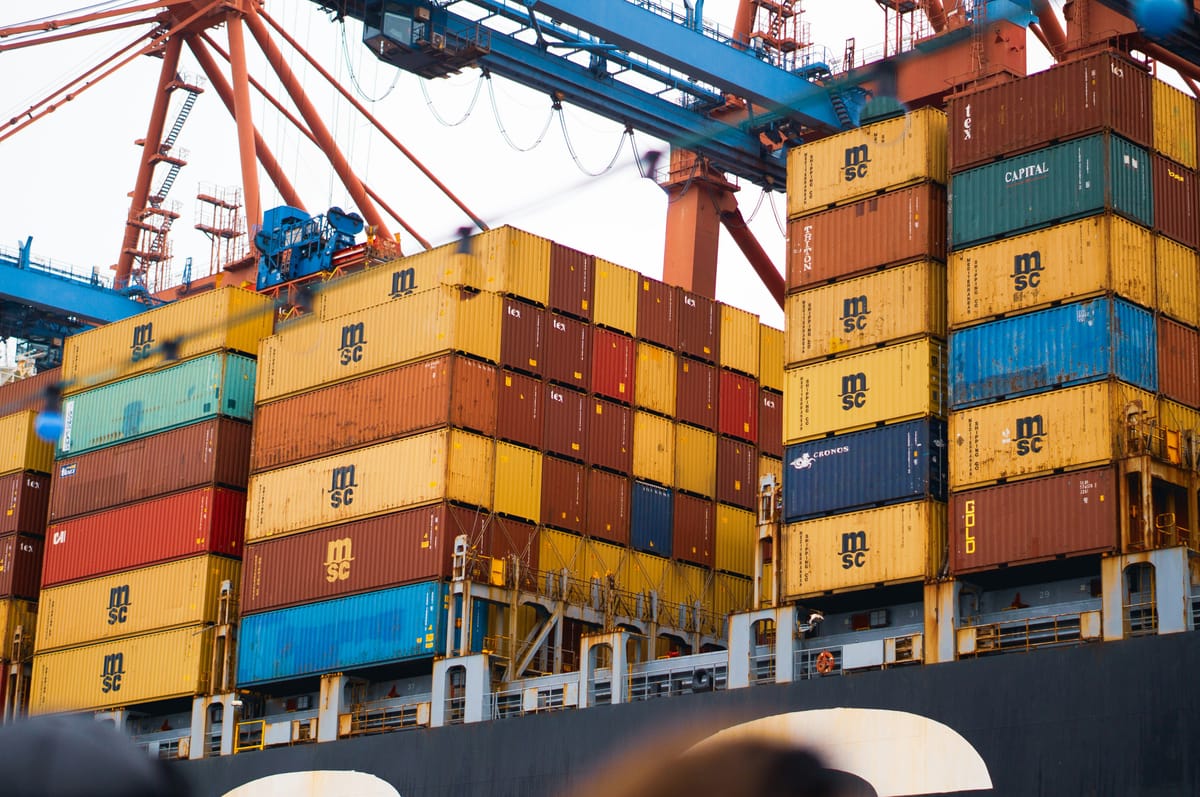Trade War 2.0: Dumber, Deadlier, and Destined for Disaster
The global economy has become a battleground where tariffs, tech bans, and supply chain sabotage are wielded like weapons, and the idiots swinging them have no regard for the collateral damage.

The volleys of economic warfare are intensifying. President and limited-edition-sneaker-spruiker Donald Trump's latest round of tariffs - 10% on Chinese goods and 25% on Mexican and Canadian imports, notably imposing a higher burden on America's allies than its long-time adversaries - triggered an immediate and calculated response from Beijing. China didn't retaliate with a broadside of random counter-tariffs on American coal and vehicles. That's an unsophisticated move from an unsophisticated age - IE, something Trump himself might attempt.
No, they deliberately targeted critical mineral exports and launched an antitrust investigation into Google. This isn't traditional trade policy anymore. We've entered an era where economic tools serve as state-controlled weapons of mass destruction that will draw every industry and every company into the fray.
Trump's first-term trade war was a diplomatic soap opera, that did little to dent the American economy that Trump's COVID-19 mishandling couldn't have done entirely on its own. His sequel promises something far more dangerous. The global economy has changed. Inflation has become a real, tangible threat. Supply chains are fragile. But most importantly: both sides now understand the true stakes. This is a drunken slugfest over technological and economic supremacy that will define the next century.
Tariffs make headlines, the stupidity of Trump's all the more so, but they're primitive tools in an increasingly sophisticated arsenal of economic warfare. When China restricts rare earth mineral exports, they're not making a statement about trade deficits - they're reminding the world that they control the vital resources powering everything from smartphones to electric vehicles. When the U.S. blocks advanced semiconductor exports, they're not protecting American jobs - they're trying to maintain their national technological edge in artificial intelligence and quantum computing.
What makes this round of economic conflict different? Scale and sophistication. Trump's first-term tariffs targeted specific industries. Companies could adapt by shifting production to Vietnam or Mexico. But his new approach threatens to tax imports from virtual any and everywhere. At the same time, China has spent years building alternative financial systems, technology platforms, and trade relationships. Both sides are better prepared for a prolonged economic siege. Companies must now factor geopolitical risk into every major decision. Should they maintain a single global supply chain or build redundant systems for different political blocs? Can they trust long-term investments in markets that might become inaccessible overnight?
The technology sector is the epicenter. Silicon Valley, for all its currently fashionable nationalistic and right-wing flourishes, thrived in a globalized world where information and capital flowed across borders. That era is over. China's antitrust investigation into Google signals a broader push to develop - and subsequently export, DeepSeek style - domestic alternatives to American technology. The U.S. chip restrictions aim to do more than protect intellectual property - they seek to prevent China from achieving AI supremacy, a strategy that has clearly failed.
We've been in the early stages of digital balkanization for a long time. This is the next level. Two distinct technological ecosystems are emerging, each with its semiconductor supply chains, Internet infrastructure, and AI development paths. The optimists call this healthy competition. The pessimists see a new Cold War. Both miss the deeper transformation: the death of the dream of a digital global commons that defined the Internet age.
Small businesses and startups face particularly treacherous waters. While tech giants like Apple can afford to reorganize their supply chains and maintain separate product lines for different markets, younger companies lack such flexibility.
What comes next? Trump has paused the tariffs on Canada and Mexico for 30 days, but the broader trajectory seems set. China won't (and shouldn't) abandon its technological ambitions. Even as Trump and his clown show of economic illiterates destroy America's economic advantages from within, they won't cede them to China. The global economy will split into competing spheres of influence, each with unique/sovereign rules, standards, and technologies.
There are questions - about the nature of economic power in the 21st century. Does military might still matter when you can cripple an adversary's economy with the push of a button? Will the winner of this economic war be the side with the most resources or the one that builds the most resilient systems? Can any nation truly achieve economic self-sufficiency in an interconnected world?
One thing is certain, to the point of being set in home-hewn stone: ordinary Americans, the ones who voted for Trump as much as the hated libs who didn't, will feel the immediate impact in their daily lives. From grocery stores to retail shops, these economic maneuvers translate directly into higher prices and will continue to do so for the foreseeable future. But the long-term cost will be even higher - a fractured, broken global economy where cooperation becomes the exception rather than the rule, and we all devolve into PVP, mutually assured financial destruction.
Traditional economic models assumed rational actors pursuing mutual benefit through trade. Today's reality features doomsday cult adversaries swinging economic tools as cudgels, with no regard for the collateral damage. The rules of engagement have changed, but they've changed for the worse. The weapons have evolved, but un-evolved hawks are wielding them. And the battlefield now extends from supermarket shelves to semiconductor labs.
Welcome to the future of global economics. It's going to get dumber.


